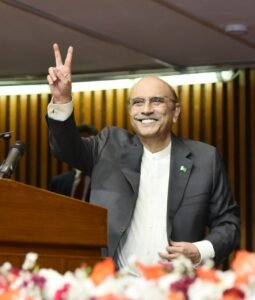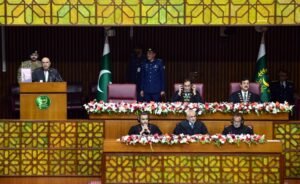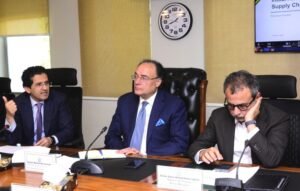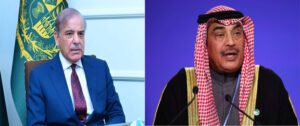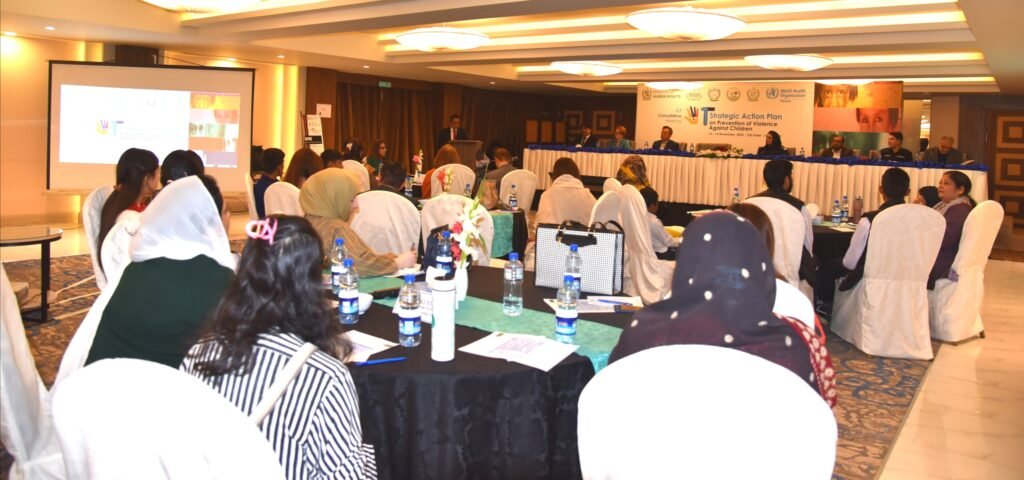
MOHR & WHO leading discussions with all provinces and partners to establish a national plan to prevent and address all forms of violence against children.
Islamabad – Pakistan’s Ministry of Human Rights and the World Health Organization (WHO) have initiated consultations to prepare a Strategic Action Plan on Violence Against Children with the vision of strengthening prevention and protecting 112 million children across the country. In Pakistan, children experience multiple forms of violence – including violent killing, physical violence, sexual violence, psychological violence, and child neglect.
The consultations with relevant partners and experts began last week in Karachi and concluded on Friday 14 November in Islamabad with participation from all provinces and self-governed areas across the country.
The plan will be grounded in the principles of the Convention on the Rights of the Child and the INSPIRE framework, an evidence-based package developed by a group of 10 international agencies under the leadership of WHO.
INSPIRE includes 7 strategies that have consistently reduced violence against children across many countries by addressing laws, norms, safe environments, caregiver support, financial stability, response services, and life skills.
“We recognize that fragmented efforts must now evolve into a cohesive, national, multi-sectoral strategy, one that mobilizes education, health, law enforcement, and community systems together. The National Strategy on Violence Against Children will provide that unified vision, with measurable targets, clear institutional responsibilities, and a robust monitoring and evaluation framework,” said Federal Secretary, Ministry of Human Rights, Abdul Khalique Shaikh.
In Pakistan, only 1 in 3 children under five is registered at birth – which creates further gaps in protection – and more than 12.5 million children are involved in child labour. Displaced children, migrant children, and those living in informal or poor urban settlements face disproportionately high risks of exploitation, early marriage, trafficking and child labour.
“Violence against children is a concerning public health issue. This Strategic Action Plan is not just a document. It is the roadmap to protect our children and our grandchildren from a worldwide crisis. Violence is jeopardizing the lives and the future of millions of children – and therefore our own future,” said WHO Representative in Pakistan, Dr Luo Dapeng. “WHO stands with Pakistan to build together a country where every child is safe and able to thrive.”
“These consultations mark not an end, but the beginning of a coordinated effort to develop a strategic roadmap aligned with the fundamental rights guaranteed by the Constitution of Pakistan, the Sustainable Development Goals (SDGs), and Pakistan’s international commitments under key UN human rights conventions,” said Dr. Muhammad Arif, Director of International Cooperation at the Ministry of Human Rights. “Strengthening and integrating existing legal and institutional frameworks is crucial to effectively prevent and respond to violence against children.”
Globally, each year, 1 billion children experience physical, sexual, or emotional violence, which can generate lifelong physical and mental health impacts. Every five minutes, a child dies from violence. These deaths are preventable.


